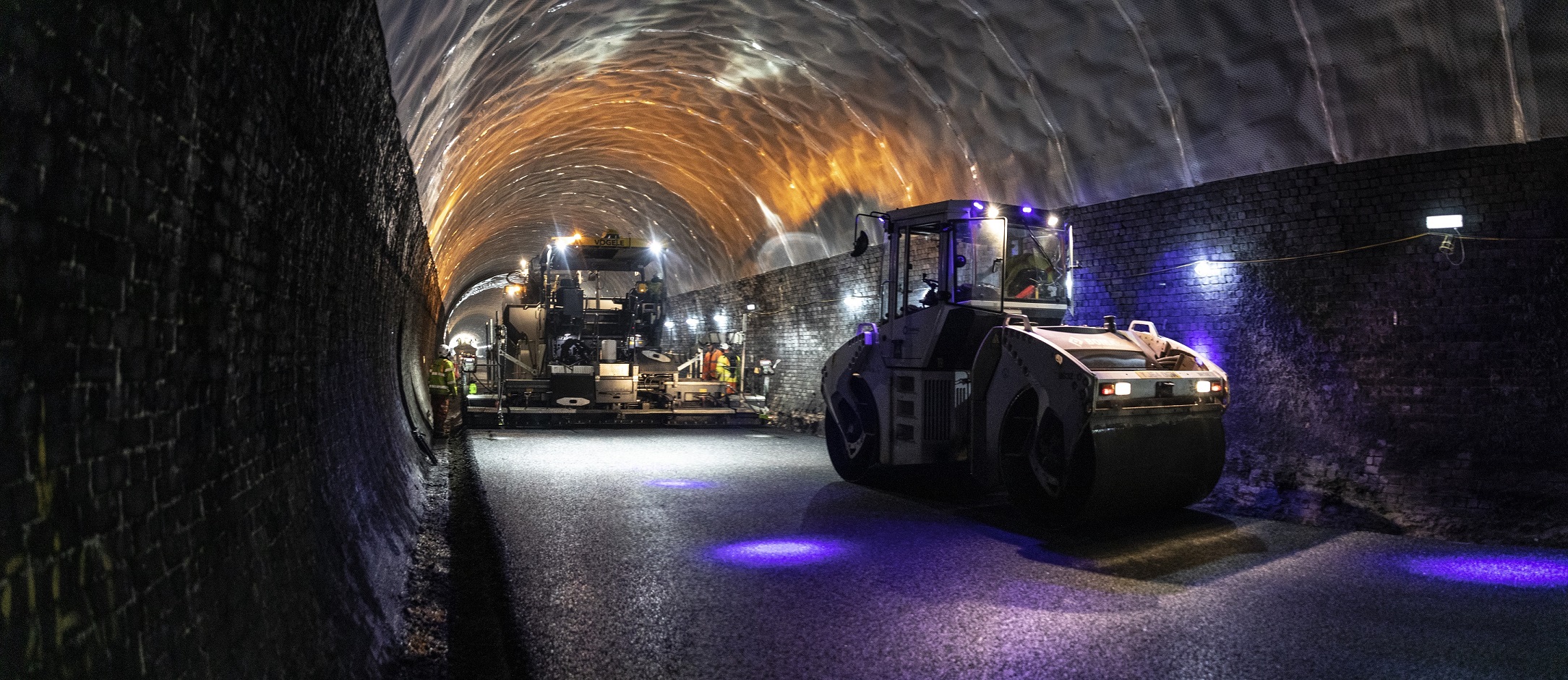
The Catesby Tunnel test strip is a super-smooth, 2.7km stretch of completely flat track that cuts through the Northamptonshire, England, countryside. The former Victorian railway line and tunnel now offers the perfect conditions for testing anything from supercars to bicycles.
With the capability for 24/7 testing in all weather conditions, Aero Research Partners’ (ARP) Catesby Tunnel is expected to attract the world’s largest automotive manufacturers. The facility, which officially opened in December, enables testing of every facet of vehicles, including aerodynamics, performance – such as speed, acceleration, braking and ride comfort – aeroacoustics, and engine emissions.
Robert Lewis, director of Aero Research Partners, said: “We have worked closely with Stepnell, who led a professional team of great subcontractors, to successfully complete the civil engineering and building works. The team converted the tunnel from a wet hole in the ground to a pristine running surface that allows sophisticated vehicle testing.
“The tunnel can accommodate any size of vehicle from road and race cars to HGVs, although the latter could – obviously – not be turned around in the tunnel so would have to reverse out. Our specialist vehicle turn-table can turn around anything up to a long-base transit van.”
The tunnel, which will operate as Catesby Aero Research Facility (CARF), removes variable conditions by offering:
- a constant gradient of 1:176, allowing an extensive range of vehicle assessment studies to be carried out
- sealed working section to ensure that the environmental conditions are consistent, allowing assured repeatable testing
- a highly secure environment, ensuring vehicle development programmes can be conducted with complete confidentiality.
Tarmac laid a specially designed SMA asphalt surface, with specialist PSV 65, 10mm gritstone aggregate, that more than met the precise paving tolerances of less than one millimetre down to 0.3mm – better than many Formula One race circuits. ARP selected the company after successfully resurfacing the racetrack at Silverstone – home of the British Grand Prix.
Rob Doody, managing director (Midlands region) for Tarmac, said: “The seamless way this project was planned and delivered resulted in a truly world-class finish that is amongst the highest known paving standards in the world today. The level of paving accuracy has delivered a surface with the exceptional consistency and uniformity needed to meet ARP’s aspiration of producing a world-leading aerodynamic test site. It enables automotive engineers to take any surface irregularity out of the equation.”
The tunnel environment meant that meticulous planning was needed to complete the work. Standard tipper trucks could not be used; the asphalt material had to be transferred using feeders and dumper trucks, forming a giant conveyor.
The supply of asphalt had to be carefully planned to ensure a continuous supply to the paver. At the same time, ventilation enabled safe working conditions to be maintained for the paving teams while working in the tunnel.
To achieve the super-smooth finish to the test track required by ARP, Tarmac used specialist aggregate – with a Polished Stone Value (PSV) of 65 – from the company’s Bayston Hill Quarry in Shropshire, which had also supplied the same stone used at Silverstone, Bahrain and Abu Dhabi Grand Prix circuits. A special mix design ensured the asphalt remained malleable while being transferred through the tunnel to the paver to provide the best possible surface finish.
Rob Doody added: “Achieving the specific tolerances required continuous paving along the full length of the tunnel, so we had to guarantee a continuous supply of asphalt to the paver from Tarmac plants at Mountsorrel, in Leicestershire, and the Elstow plant, near Bedford.
“In two shifts, the paving teams worked from 7am to 7pm, laying 1,340 tonnes of asphalt with a seamless changeover without stopping the paver.”
Richard Wakeford, director at Stepnell, said: “We are proud to hand over the Catesby Aero Research Facility to ARP. This has been an amazing and exemplary project bringing together the best of the industry to deliver a modern test facility that will drive transportation efficiencies for years to come. Overcoming several engineering challenges, this project has been a truly collaborative experience and my thanks to all those involved.”













